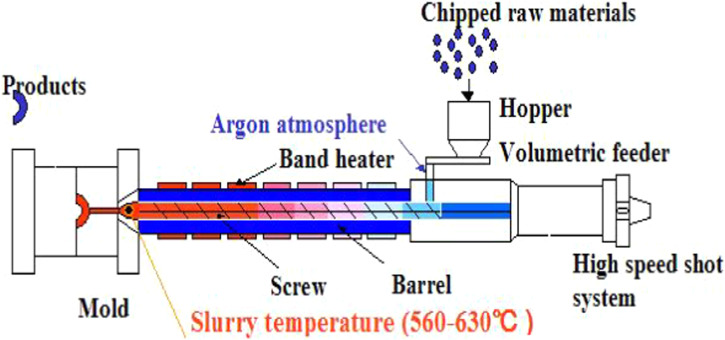Introduction:
Metal fabrication plays a crucial role in the manufacturing industry, and aluminum machining is one of the key processes involved. Aluminum is widely used in various industries due to its excellent properties, such as lightweight, high strength, corrosion resistance, and thermal conductivity. In this article, we will explore the precision and efficiency of aluminum machining and its significance in metal fabrication.
1. Precision in Aluminum Machining:
Precision is a fundamental requirement in aluminum machining. The dimensional accuracy and surface finish of machined aluminum parts directly impact their functionality and performance. Machining processes such as milling, turning, drilling, and grinding are employed to achieve high precision levels.
Computer Numerical Control (CNC) machining has revolutionized the precision of aluminum machining. CNC machines use computer programs to control the movements of the cutting tools, resulting in accurate and consistent machining operations. The ability to program complex geometries and intricate designs enables CNC machines to produce parts with exceptional precision.
Additionally, advanced machining techniques like high-speed machining and five-axis machining further enhance precision in aluminum machining. High-speed machining utilizes specialized tools and techniques to achieve higher feed rates and spindle speeds, while five-axis machining enables simultaneous machining on multiple axes, reducing setup time and improving accuracy.
2. Efficiency in Aluminum Machining:
Efficiency is another critical aspect of aluminum machining. Manufacturers constantly strive to optimize production processes to meet increasing demands while minimizing costs and lead times. Several factors contribute to the efficiency of aluminum machining.
Tooling selection is crucial for achieving high machining efficiency. Cutting tools with appropriate coatings, geometries, and materials ensure longer tool life, reduced downtime, and improved productivity. Advanced tooling technologies like indexable inserts and solid carbide tools provide enhanced performance in aluminum machining applications.
Automation and robotics play a significant role in improving efficiency in aluminum machining. Automated systems can handle repetitive tasks, reducing human error and speeding up production. Robots can load and unload workpieces, change tools, and perform other tasks, enabling continuous operation and minimizing idle time.
Optimized machining strategies, such as high-speed machining and trochoidal milling, help improve efficiency while maintaining precision. These techniques involve the use of higher cutting speeds, increased feed rates, and shorter tool engagement times, resulting in reduced cycle times and increased material removal rates.
3. Significance of Aluminum Machining in Metal Fabrication:
Aluminum machining holds immense significance in metal fabrication due to its wide range of applications. Aluminum is extensively used in industries such as aerospace, automotive, electronics, and construction. Machining precision and efficiency are crucial for producing complex aluminum components used in these industries.
In the aerospace sector, aluminum is the preferred material for manufacturing aircraft components, thanks to its lightweight and high strength-to-weight ratio. Machining precision ensures the production of critical components like wing spars, engine parts, and landing gear with accurate dimensions and tight tolerances.

The automotive industry extensively utilizes aluminum in engines, chassis, and body parts to reduce weight and improve fuel efficiency. Machining efficiency is vital to meet the high demand for automotive components while ensuring cost-effectiveness.
In the electronics industry, aluminum machining is essential for producing heat sinks, electrical enclosures, and connectors. Precision machining guarantees the proper fit and functionality of these components, ensuring optimal performance and reliability.
Conclusion:
Aluminum machining plays a pivotal role in metal fabrication, offering precision and efficiency in the production of complex aluminum components. The ability to achieve high precision levels ensures dimensional accuracy, while efficiency in machining processes reduces costs and lead times. The significance of aluminum machining in industries such as aerospace, automotive, and electronics cannot be overstated. With advancements in technology and machining techniques, aluminum machining continues to push the boundaries of what is possible in metal fabrication.
-

- Μεταλλικά φρένα Thixomolding με χύτευση από κράμα μαγγενίου
-

- Magnesium alloy foundry parts bicycle frame CNC machining & surface finishing
-

- 2022 Χονδρική Hot Sale Ανταλλακτικά ποδηλάτων από κράμα μαγνησίου Παιδικό ποδήλατο χωρίς ισορροπία πεντάλ Παιδικά Πολλαπλά χρώματα Διαθέσιμα
-

- Magnesium alloy die-casting Auto parts headlight frame
-

- Δημοφιλές παιδικό αθλητικό ποδήλατο Υψηλής ποιότητας Παιδικό ποδήλατο ισορροπίας Παιδικό ποδήλατο
-

- Κέλυφος UAV εξαρτημάτων θιξοκαλουπώματος μαγνησίου

 0086-750-5616188
0086-750-5616188 +86 13392089688
+86 13392089688 sales@zhongmei-tech.com
sales@zhongmei-tech.com







